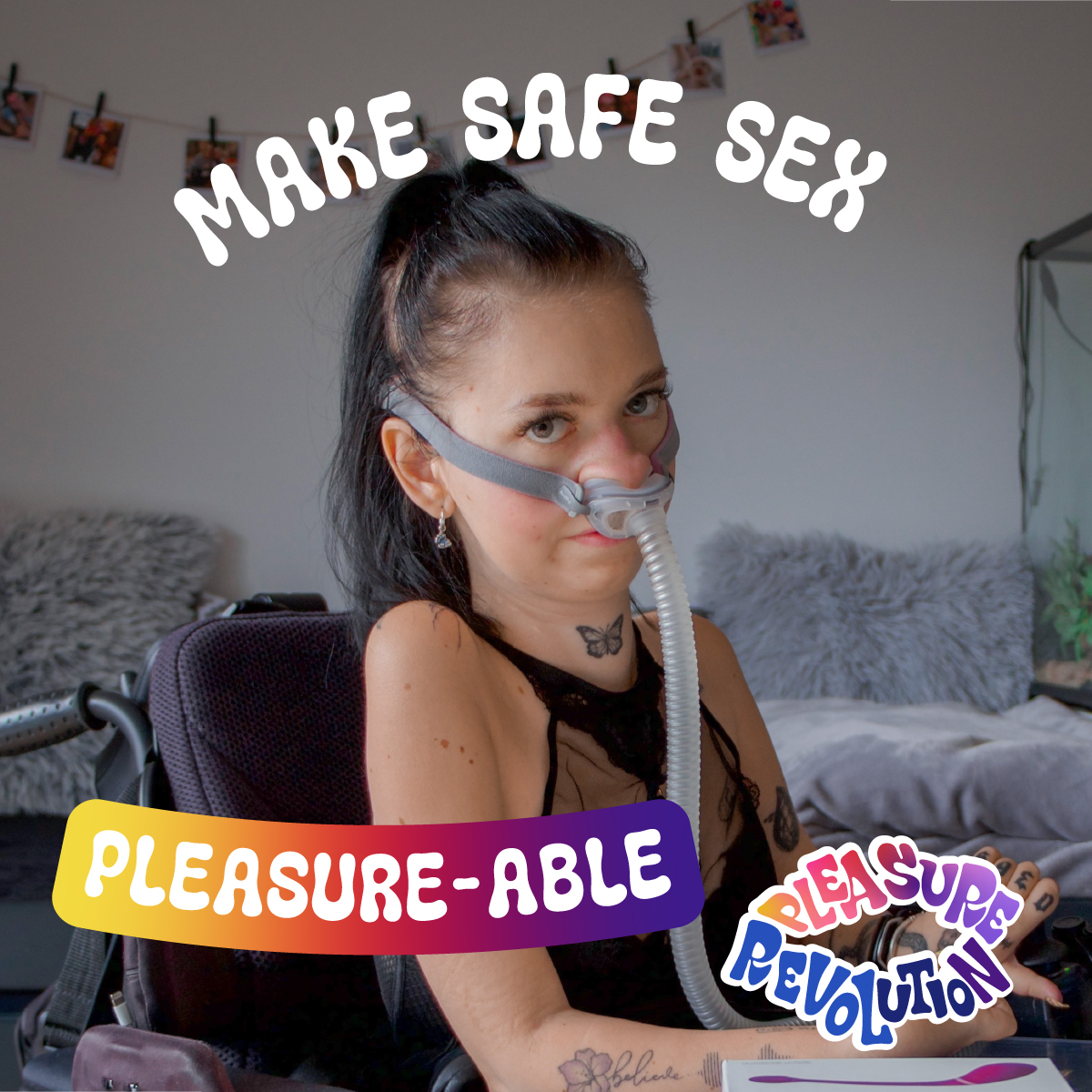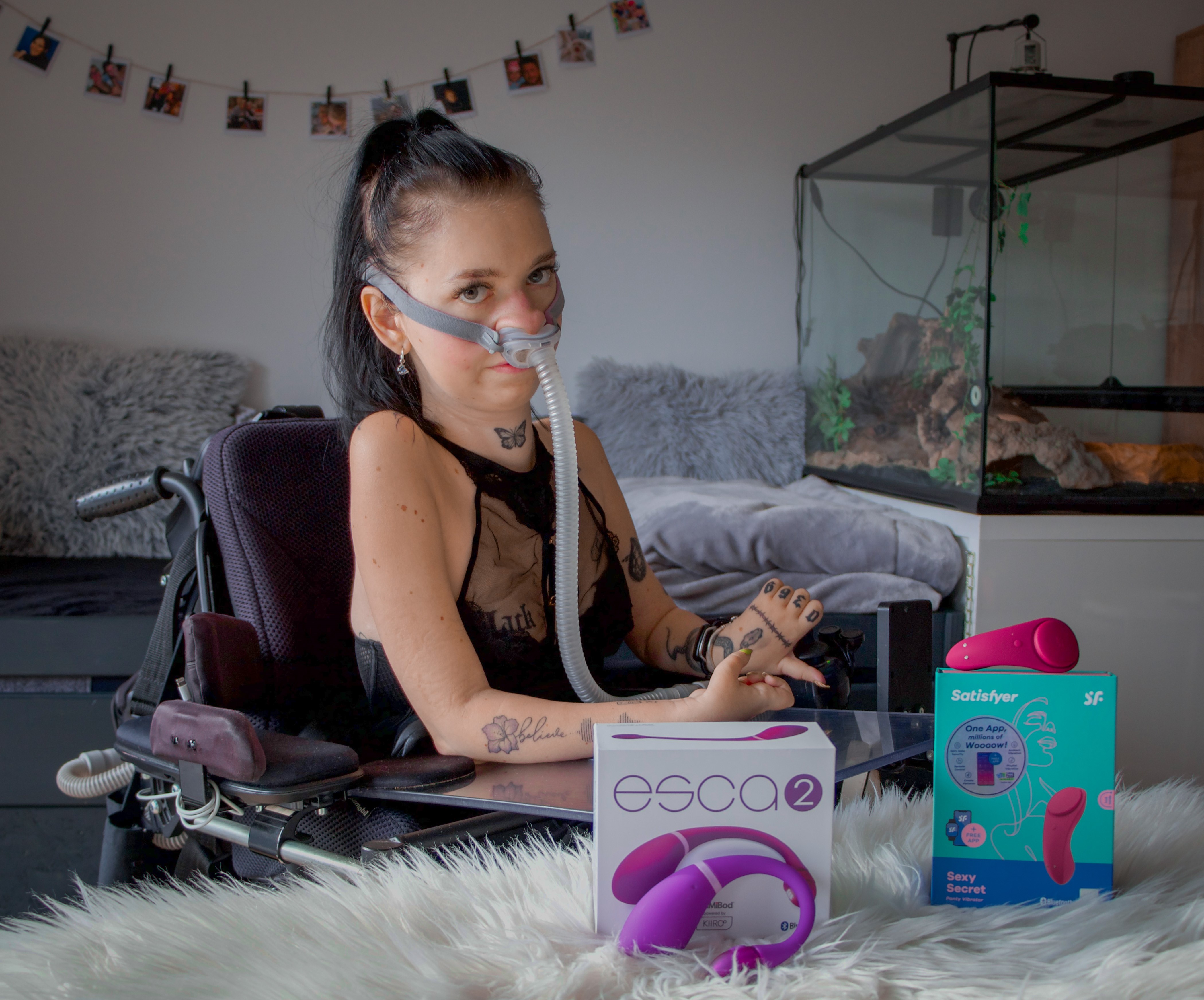
My name is Vita, I’m a 25 year old Master’s student of Criminal Justice and Security from Slovenia, a content creator, author, disability advocate & influencer. On my Instagram page (@wheelchairsparkle) I talk about taboos, ink, inclusion, disability, and lifestyle. With that, I try to educate people on disability and show everyone that we’re no different - only people, just like you.
Articles by Vita Bernik

5 ways to redefine and normalize narratives of disability and pleasure
In a world where discussions around pleasure and sexuality often exclude individuals with disabilities, it is crucial to shed light on the realities experienced by the disabled community. As a disability advocate from Slovenia, I've always tried to push for better representation of people living with disabilities through my work in challenging misconceptions and breaking down barriers. I’ve been featured in publications such as Vogue, iD-Italy, and Cosmopolitan Slovenia where I’ve talked about my experience as a model with a disability, and my self-love journey. I also share insights on taboo topics, ink, inclusion, disability, and lifestyle on my Instagram page. I believe in building understanding through exploration and education. That’s why I’m excited to share 5 things to remember when redefining and normalizing narratives of disability and sexuality. In doing so, I hope to create a world where pleasure knows no boundaries, and where inclusivity reigns supreme. 1. Disabled individuals can be intimate, experience pleasure, and have fulfilling sexual lives Despite common assumptions, disability does not negate the capacity for intimacy or the desire for physical connection. Disabled individuals, like anyone else, have the right to experience pleasure and engage in consensual sexual relationships. By acknowledging and supporting their sexual agency, we can promote inclusivity and foster a more accepting society. 2. Representation and inclusivity matters in the pleasure industry The pleasure industry, including media, adult entertainment, and sex education, often fails to represent disabled individuals. Not only does this leave us feeling excluded and undervalued, it also perpetuates the common assumption that people with disabilities don’t need or want to experience sexual pleasure. However, there are notable examples that offer inspiration. For instance, Zebedee Agency specializes in representing people with disabilities, and models like Aaron Philip have made significant strides in disabled representation in the fashion industry and in pop culture. While progress has been made, it is crucial to move beyond the trendiness of inclusivity and work towards normalizing representation as a genuine reflection of society. 3. Disabled individuals are worthy and valuable partners Disability should never be a barrier to forming meaningful and fulfilling relationships. Disabled individuals are not defined solely by their disabilities; we possess unique talents, personalities, and qualities that make us wonderful partners. By recognizing our worth and challenging societal prejudices, we can foster more inclusive and accepting relationships, where love and connection exist without limitations. 4. We all have a role to play in challenging assumptions and dispelling stereotypes Effectively challenging assumptions and dispelling stereotypes involves amplifying diverse voices and showcasing the multi-faceted lives of disabled individuals. It requires embracing authentic stories that defy societal expectations. For example, in my book titled "IT'S ALL IN OUR BLOOD," the main character is disabled, providing an intimate portrayal of everyday life, struggles, love, and drama. Such narratives highlight the universal humanity within disability and debunk misconceptions. 5. Education is key, and it can come from many different places Education plays a pivotal role in fostering a more inclusive society. It extends beyond traditional channels and can be found in diverse sources. For instance, my book also exemplifies how sex education and discussions surrounding disability and pleasure can come from different places. By encouraging the creation of diverse media that includes nuanced conversations about disability and pleasure, we can contribute to a more inclusive and informed society. As a disability advocate, I continually strive to challenge misconceptions, break down barriers, and promote better representation for people living with disabilities. By acknowledging successful examples of representation in various industries, emphasizing authentic narratives that defy stereotypes, and recognizing the importance of education through diverse sources such as literature, we can pave the way for a more inclusive and accepting world. Together, let us work towards normalizing disability as an integral part of the human experience. Click here to learn more about IPPF's Pleasure Revolution campaign.









